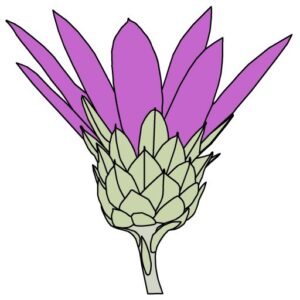A sociological loner is a plant species that is by no means sociologically connected to other species, so that it regularly occurs with totally different species combinations. If sociological loners show a significant tendency towards dominance, they pose a difficult problem to syntaxonomy, because this combination – dominance without a definite species combination – does not fit into classifications based on the Braun-Blanquet approach in its strict sense. In addition, even if one choses the decision of building associations on such species, as it is done within the Ceplac, it is difficult to assign these to higher units.
Fagus sylvatica for instance, one of the most prominent Central European tree species, is such a “dominance-loner”. It shows indeed a strong tendency towards dominance whereever the site-conditions aren’t optimal for other tree species. All combinations with other tree species can be considered as transitions, e.g. the mixed stands of Fagus with Quercus spp. as transitions towards oak lowland woodlands and those with Picea abies and/or Abiea alba as transitions towards pure coniferous mountain forests. And as for the herbaceous layer, it ist well known that Fagus sylvatica covers a high variability. There are f.i. the acidophytic forests which herbaceous layer belongs to the Calluno-Ulicetea or Melampyro-Holcetea, the stands on “better” soils for which herbaceous layer within the Ceplac a new class Mercurialietea perennis has been created, and others.
